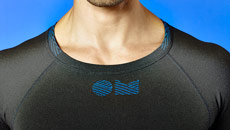If you are a shift worker, donating blood could be an easy way to reduce the risk of heart disease, says a study.
The high incidence of heart disease seen in shift workers could be due to the tiredness resulting from the disruption to the body's biological clock as jetlag has a severe effect on red blood cells.
These effects can be counterbalanced by fresh, young red blood cells - making blood donations a potential therapy for shift workers, the findings showed.
"Blood donations in humans also stimulate the generation of new fresh erythrocytes. Therefore, blood donations on a regular basis might be a very simple measure to help decrease the cardiovascular risk in human shift workers," said Margit Egg from University of Innsbruck in Austria.
The scientists worked on zebrafish (Danio rerio), a model organism which, like humans, is active during the day.
The fish were subjected to alternate short (seven hour) and long (21 hour) days, resembling shift patterns common in industry.
It was found that "jet-lagged" animals showed higher numbers of aged red blood cells, which accumulated in the blood vessels.
"Normally there is a balance between newly produced red blood cells and old ones which are removed from the blood," Egg noted.
Old cells are less flexible and become stuck in the spleen and liver, where they are engulfed by white blood cells.
Jetlag appears to disrupt this removal process.





